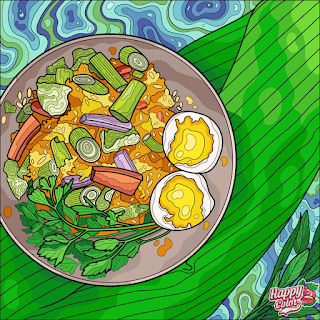Breakfast
- Get link
- X
- Other Apps
How did breakfast become the favorite meal of the day? Specifically, eggs, toast or biscuits, hash browns or grits, pancakes or waffles, cereal or oatmeal or cream of wheat, sausage or bacon, some kind of hash and every combination applied thereunto.
Breakfast isn’t just for breakfast anymore. Is it the ease of cooking? The most satisfying to the senses? Goes best with coffee? Restaurants who keep breakfasts on the menu seem to thrive more. Why is that?
Literature might contain more references to breakfast than any other meal, though last suppers seem to bear the deepest meaning. Hemingway sends the Old Man to sea after breakfast. Tolkien favored breakfast with his characters enjoying a daily “second breakfast.” While the egg is an ancient symbol of new life, in 1921, Sherwood Anderson used it to picture the struggle of life, even a weapon, a missile launched in frustration.
Any time of day, breakfast wins. The smell of bacon, the sizzle of sausage, the warmth of the kitchen, always something good.
- Get link
- X
- Other Apps


